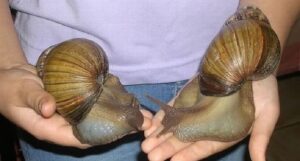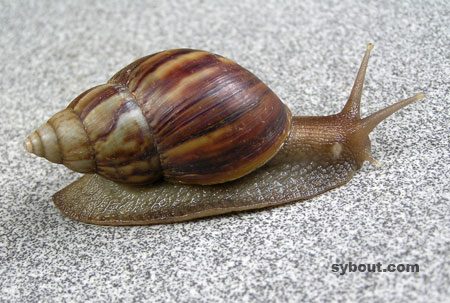The Goa University campus at Taleigao plateau has become a home to Giant African Land Snail (GALS). The location may be showing signs of impact of gross human interference. These snails are listed in the world’s top 100 invasive species. Their biological name is ‘Achatina fulica’.
Dr. Nandkumar M. Kamat, Asst. Professor, Department of Botany, at the varsity spotted young individuals of the species slowly crawling to reach the other side from the footpath that links the campus to the Management Department of the University campus.
“Now it is clear that these were just baby GALS. Their giant parents were located today,” Dr. Kamat told The Hindu on Saturday.
“Is it global warming… local impacts of global climate change?…whether GALS would spread from Goa university campus to surrounding villages… young conchologists and gastropod scientists have scope to do further research,” Dr. Kamat opined.
Dr.Nandkumar encountered two huge specimens of 11-cm long peculiar invasive species of the snail for the second time in the University campus. But before this, young individuals of GALS were spotted making their way across the footpaths at night. Sadly, numerous baby snails were found crushed, he informs.
Twice the size

In length, the GALS actually range from 7 cm to 20 cm. But the Goan specimens are similar at 11 cm , lengthwise.
“This indicates that GALS are alive, reproducing and dispersing from the campus. Specimens this year are double the size of what was found last year in the same area,” the researcher said.
“Ecologically, the species are dangerous as they reproduce faster and take over entire ecosystems, this becoming a menace to crops,” Dr. Kamat said, adding that research on GALS is being carried out by Maneetha T.K, Research Scholar, Forest Health Division, Kerala Forest Research Institute at Thrissur Kerala. Dr. Kamat said he has already informed the Kerala research institute about the finding.
For the interested people who want to study more about GALS, two such specimens have been documented and preserved at the Mycology bio-safety lab of Department of Botany of the Goa University.


